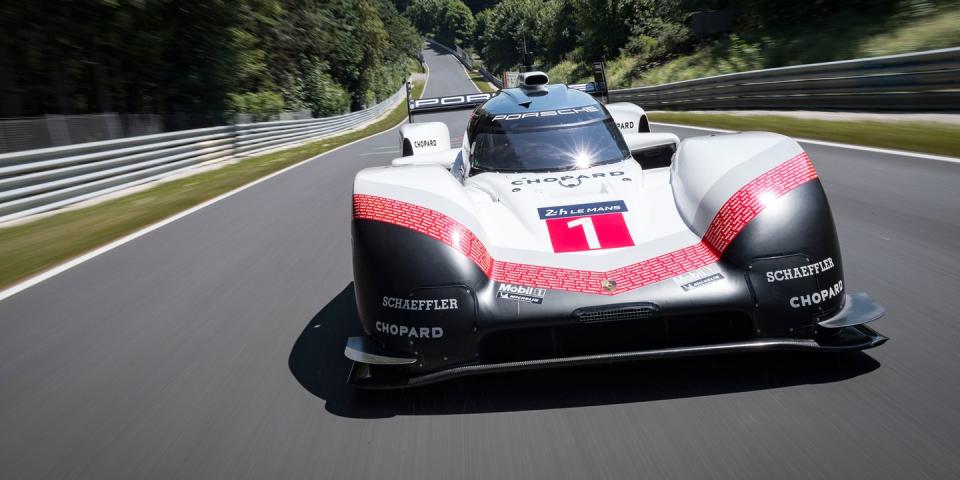How the Porsche 919 Hybrid Evo Made Its Record-Breaking Nürburgring Lap Time

Quick at Germany's legendary 12.9-mile, 73-turn Nürburgring Nordschleife is 7:16.04 in a 2018 Chevrolet Camaro ZL1 1LE. Quicker is the 2018 Lamborghini Aventador SVJ that busted up the place with a 6:44.97 run, the production-car record. But awesome? Awesome is driver Timo Bernard's 5:19.55 in the Porsche 919 Hybrid Evo. It's the quickest lap any car has ever turned around the Nordschleife, slaughtering the 6:11.13 record that stood for a lifetime, set during qualifying in 1983 by the late Stefan Bellof in that pathetic ox cart, the Porsche 956C. Of course, Bellof was restrained by the burden of having rules to follow. Bernard, in the Evo, wasn't.

The Evo was born as a tribute to Porsche's three-time Le Mans–winning 919 Hybrid after Porsche quit the World Endurance Championship's LMP1 class at the end of the 2017 season to focus on developing a car for the Formula E series. According to Stephen Mitas, the 919 Hybrid's chief race engineer, "The budget for the [Evo] project was very modest and the time to develop and build the car was quite short." The Evo exaggerates the 919 Hybrid, but only to a point. It still uses the Hybrid's turbocharged 2.0-liter V-4 to turn the rear wheels and an electric motor to turn the fronts. Throwing out the air conditioning, lights, jack system, wiper, and other unnecessary items dropped the 919 from a dry weight of 1958 pounds to 1872 despite the giant wing, larger front diffuser, and fortified suspension control arms. Removing fuel restrictors upped engine output from 500 horsepower to 720 while output from the electric motor jumped from 400 horsepower to 440.
But even the Evo has its limits, and it could be the person at the wheel. "An autonomous 919 should be able to match the lap time of the perfect human driver, as the performance limit would then be the vehicle," Mitas says. "However, we are currently unable to test this hypothesis."

('You Might Also Like',)

 Yahoo Autos
Yahoo Autos 